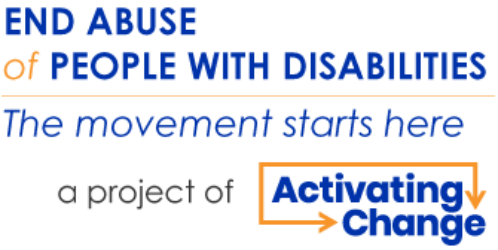Sex Trafficking and Disability
People with disabilities are targeted at higher rates than their peers to exploitation and/or abuse, including sex trafficking. Sex traffickers deliberately target individuals they know they can isolate and control and both individual and systemic conditions increase the risk for people with disabilities. Specifically, people with disabilities often live in relative isolation, may rely on assistance from others to get to work and to access basic services and may be denied information about trafficking. Compounding these individual risk factors are barriers within our systems to identifying and supporting survivors with disabilities. This includes barriers to reporting or seeking help, a lack of disability-centered victim responses, and a lack of economic resources due to the devaluation of people with disabilities and their labor. Many survivors of trafficking also acquire disabilities as a result of being trafficked, yet few service providers are prepared to provide services and supports to survivors who have this experience. In recognition of human trafficking awareness month, this webinar explored the unique risk factors of persons with disabilities, and what service providers and communities can do to take action at multiple levels.
